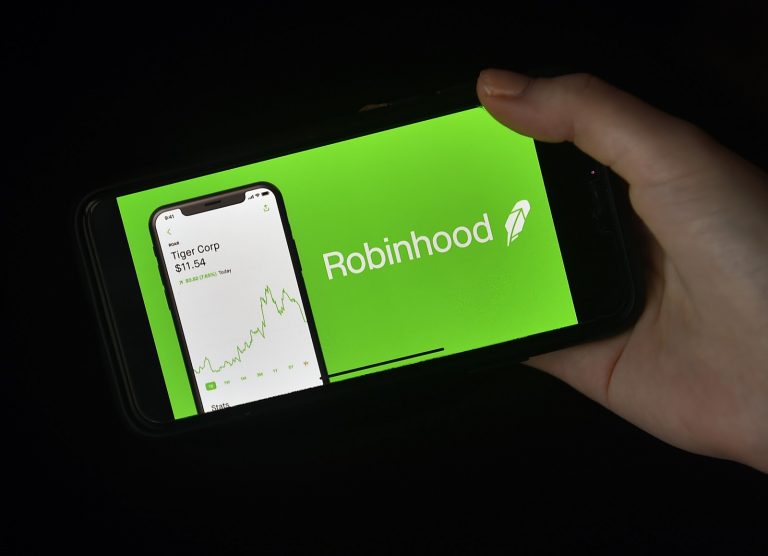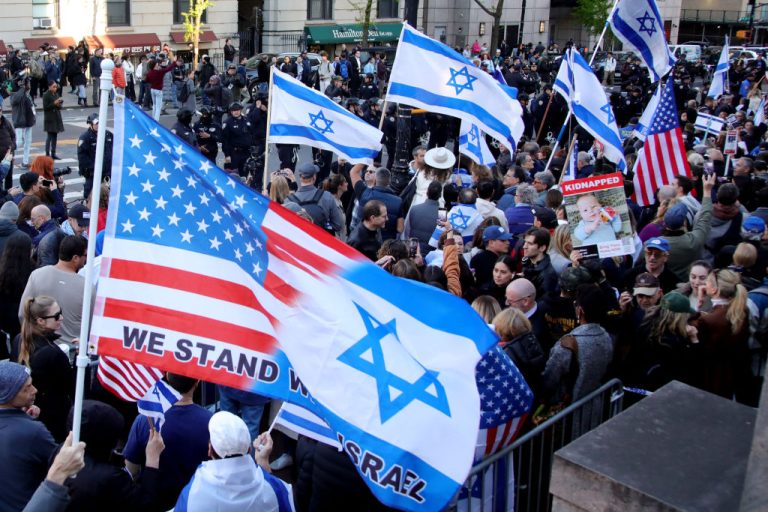The House Committee on Financial Services convened on Thursday, Feb. 18, to question participants in the “Gamestop Rebellion,” a pop culture reference to a late January and early February move in the stock price of Gamestop. It saw shares of the embattled video game retailer increase more than 2000 percent in value from $20 to $480.
The hearing, coined “Game Stopped? Who Wins and Loses When Short Sellers, Social Media, and Retail Investors Collide,” was held via Zoom. The proceedings were chaired by Rep. Maxine Walters (D-CA) and featured a panel composed of hedge fund Melvin Capital Management LP CEO Gabriel Plotkin, Robinhood Markets Inc. CEO Vladimir Tenev, Citadel LLC CEO Kenneth C. Griffin, Reddit CEO, and co-founder Steve Huffman, and Director of Financial Regulation Studies at the Cato Institute Jennifer Schulp.
In her opening statements, Walters wanted to focus on “The enormous potential power of social media in our markets.” While many Reps stuck to the narrative that the Gamestop pump and dump was a result of social media rather than Wall Street behemoths like Senvest Management, who made $700 million, over the course of the five and a half-hour hearing, Representatives were more interested in the business mechanics of Citadel and Robinhood.
Accredited investor regulations feed speculation
Ranking Member of the Financial Services Committee Rep. Patrick McHenry (R-NC) aired his position that America’s accredited investor regulations, posed as protections to stop retail investors from losing all their money, were actually a major contribution to the rise of apps like Robinhood, which some say have turned investing into gambling, “Policies like the accredited investor definition blatantly pick winners and losers. If you’re wealthy, you’re good to go, and if you’re not if you’re deemed too dumb to be trusted with your own money.”
“So a privileged few gets to invest alongside ivy league endowments, getting early access in private markets to the greatest returns of the past few generations. But, not so fast for the average everyday investor. In the eyes of our government you need to be protected. Protected from your own decisions, protected from your own money, protected from opportunity.”
Success
You are now signed up for our newsletter
Success
Check your email to complete sign up
“So you’re left with a savings account that pays no interest, and if you need more money than that, we create a world where it’s easier to go buy a lottery ticket than it is to invest in the next Google. Is it any wonder why the unhealthy dynamics of Gamestop happened?” asked McHenry.
During the question and answer period, Jennifer Schulp explained how the laws work “The SEC limits a lot of investment in private companies to those folks known as accredited investors. To become an accredited investor, you have to meet a wealth test of earning at least $200,000 a year or having a net worth of over a million dollars. The vast majority of people in this country don’t meet that standard and are unable to invest in most private companies.”
Robinhood was on the verge of liquidation
Vlad Tenev apologized to Robinhood customers and said he wanted to make it clear that his company did not restrict purchases of “meme” stocks like Gamestop in late January “to help hedge funds,” but instead because of regulatory requirements.
Rep. McHenry asked Tenev why traders were prevented from buying but not selling. Tenev said the decision was “driven purely by deposit and collateral requirements imposed by our Clearinghouses. “Buying securities raises capital requirements, and selling does not. Preventing customers from selling is a very difficult and painful experience where customers are unable to access their money,” he said.
Rep. Carolyn Maloney (D-NY) reminded Tenev of his company’s original blog post where Robinhood restricted trading was said to be due to volatility. She also lamented the app’s lack of language or disclosures about their capital requirements and was critical of Robinhood’s Terms of Service because they “only include vague language that at any time and in its sole discretion Robinhood can restrict trading. In other words, you seem to reserve the right to make up the rules as you go along.”
Rep. Anthony Gonzalez (R-OH) asked Tenev about reports that Robinhood was required to come up with $3 billion on the morning of Jan. 28, the day Gamestop share price peaked at $483. In Tenev’s impromptu Jan. 31 interview with Tesla CEO Elon Musk about the Clubhouse App, Tenev said, “Thursday morning I’m sleeping. At 3:30 am Pacific, our operations team receives a file from the NSCC, the National Securities Clearing Corporation. So, basically, as a broker as a clearing broker. And this is where RobinHood Securities comes in. We have to put up money to the NSCC based on some factors including things like the volatility of the trading activity into certain securities.”
“So, they give us a file with the deposit, and the request was around $3 billion, which is, you know, about an order of magnitude more than what it typically is…Just to give context, Robinhood up until that point has raised around $2 billion in total venture capital.”
As Gonzalez pushed Tenev on the matter, Tenev admitted that if his company were not able to come up with the money, which it ultimately negotiated down to approximately $1.4 billion, its entire trading portfolio would have been liquidated by the clearinghouse and both the company and its customers would have been unable to continue.
When Democrat House Delegate to Guam Michael San Nicolas questioned Tenev, the CEO admitted that they raised the money by selling equity to investors to come up with the capital required. The capital infusion from shareholders was confirmed in a Feb. 1 article by the Wall Street Journal.
Delegate Nicolas pitched into Tenev, saying the real reason he halted buys of Gamestop stocks was to reduce the margin call they knew was coming so that he (Tenev) wouldn’t have to dilute his position in Robinhood to raise funds further than he had to, “You took from your customers in order to minimize the $3 billion from being larger than it probably would have been because you wanted to protect your position. That is very troubling. That is very troubling.”
“It is very troubling that the order flow model that you built and the risk you took on resulted in that halt, and it’s very troubling that halt also materially benefitted the existing shareholders and yourself by minimizing the amount of additional capital you had to raise in order to prevent that from happening again.”
“You basically took from the shareholders in order to do that, and I don’t know what to say about that,” said Nicolas
Payment through order flow
Little known to the public, although trading apps such as Robinhood quote prices that are very similar or the same as the NYSE or TSX, most retail trading happens off-exchange through market makers.
Ken Griffin, CEO of Citadel Securities LLC, said that although his firm played an important role in executing trades as a market maker, they had no role in Robinhood’s trading restrictions. Citadel had no interruptions in liquidity during the entire run.
Griffin said on Jan. 27 alone, they executed 7.4 billion retail investor shares trades, and more than 40 percent of all retail trades, “To put this into perspective, on that day Citadel Securities executed more shares than the entire average daily volume of the entire U.S. equities market in 2019.”
While Rep. Ann Wagner (R-MO) remarked it’s a great thing retail investor participation in the markets has more than doubled due to Robinhood’s fractional shares and zero commission trading because it reduces barriers to market participation, Rep. Brad Sherman (D-CA) voiced his suspicion as to how Robinhood and Citadel are making money in the business model, “When you go onto Facebook, and it’s free, you’re the product being sold to the advertiser, and your information is sold to God knows whom. So we now have a system where we’re telling investors that it’s free to invest to buy and sell stock.”
Sherman said there are “two ways to pay the folks involved in Wall Street for buying and selling a stock,” the first being a standard commission, “The other way to do it is to give them a worse execution.”
What Sherman referred to is more commonly known as a “spread,” which is a monetization structure most commonly used by foreign exchange brokers where “execution” means if the exchange is currently trading at, say, $40.69 in the case of Gamestop’s Feb. 18 close on the New York Stock Exchange, your order would execute instead at say $41, with the $0.31 difference being collected as profit.
Although payment for order flow trading is supposed to occur at the same or better price as exchange trading, Sherman asked Griffin point-blank whether Citadel executes Robinhood’s trades at the same price as they would from a large financial institution such as Fidelity. Griffin did not answer the question directly and only replied, “The quality of the execution varies by the channel of the order. This is a commonly understood phenomenon in economics that channels matter.”
Payment for order flow (PFOF) is how Citadel and Robinhood make their money, and it is Robinhood’s largest revenue stream, according to Tenev. SEC Filings showed his company pulled in just shy of $12 million in December of 2020 from routing order flow through Citadel Execution Services alone. Citadel was one of five market makers Robinhood Securities LLC used that month.
A Bloomberg Intelligence study cited by CNBC argued that PFOF was not disadvantageous to retail traders, “Retail brokers’ controversial practice of selling client orders to market makers (payment for order flow) benefits equity investors by enhancing execution quality, with our analysis showing that Citadel Securities and its peers returned $3.7 billion in 2020 to investors in the form of price improvement,” the study concluded. “That’s nearly 3x what they paid for that equity flow.”
But a 2000 SEC study on PFOF said the practice inherently creates “conflicts of interest” between brokers and their retail clientele “because of the tension between the firms’ interests in maximizing payment for order flow or trading profits generated from internalizing their customers’ orders, and their fiduciary obligation to route their customers’ orders to the best markets.”
Chief Operating Officer of the NYSE, Michael Blaugrund, told CNBC exchanges have their own concerns about the PFOF monetization model, “But all of this trading in private dark venues means liquidity is becoming less accessible for institutional investors and the price discovery process is becoming degraded.”
Follow us on Twitter or subscribe to our email list















